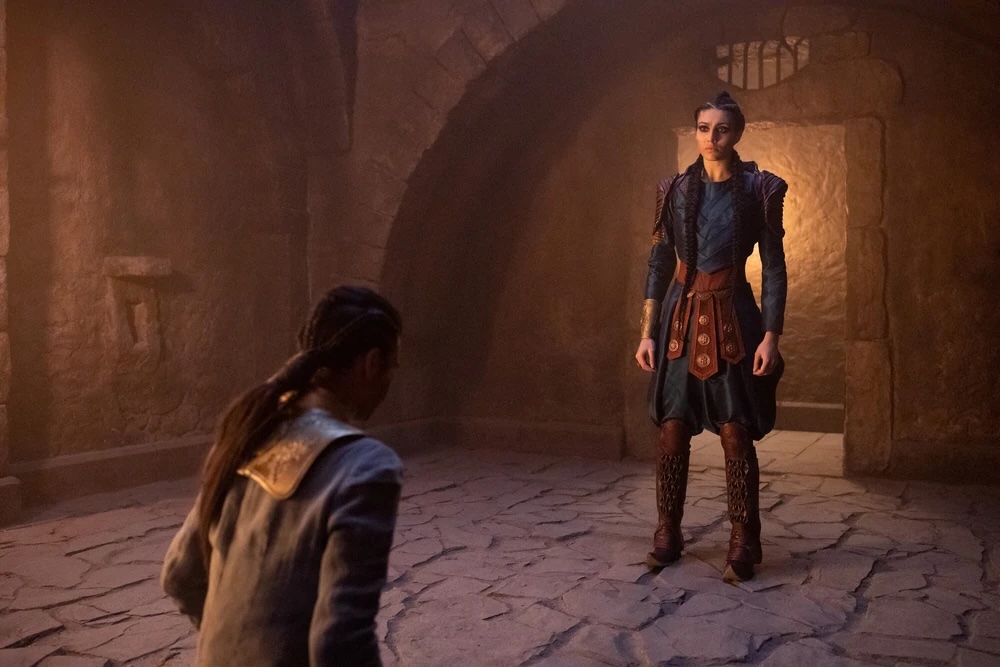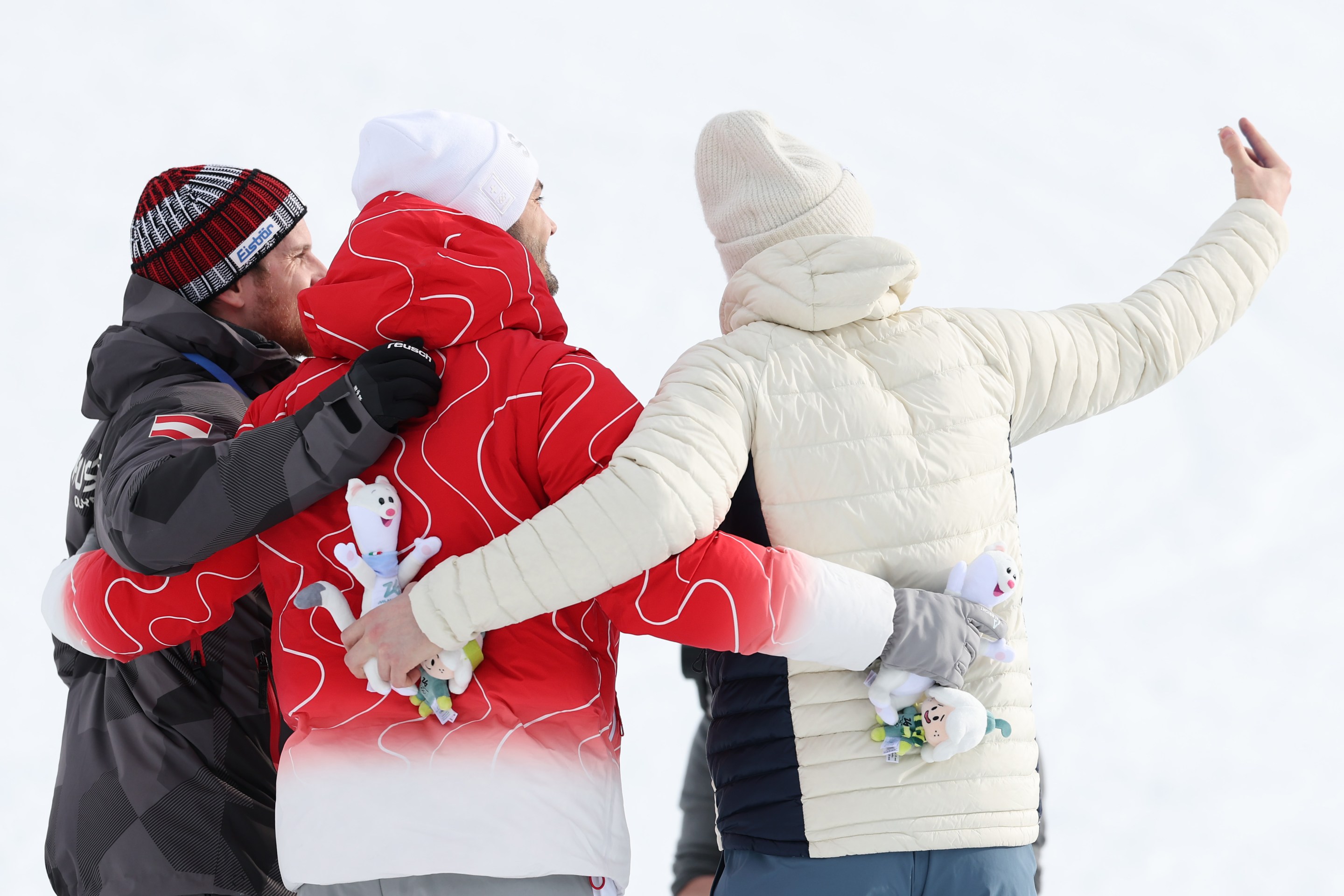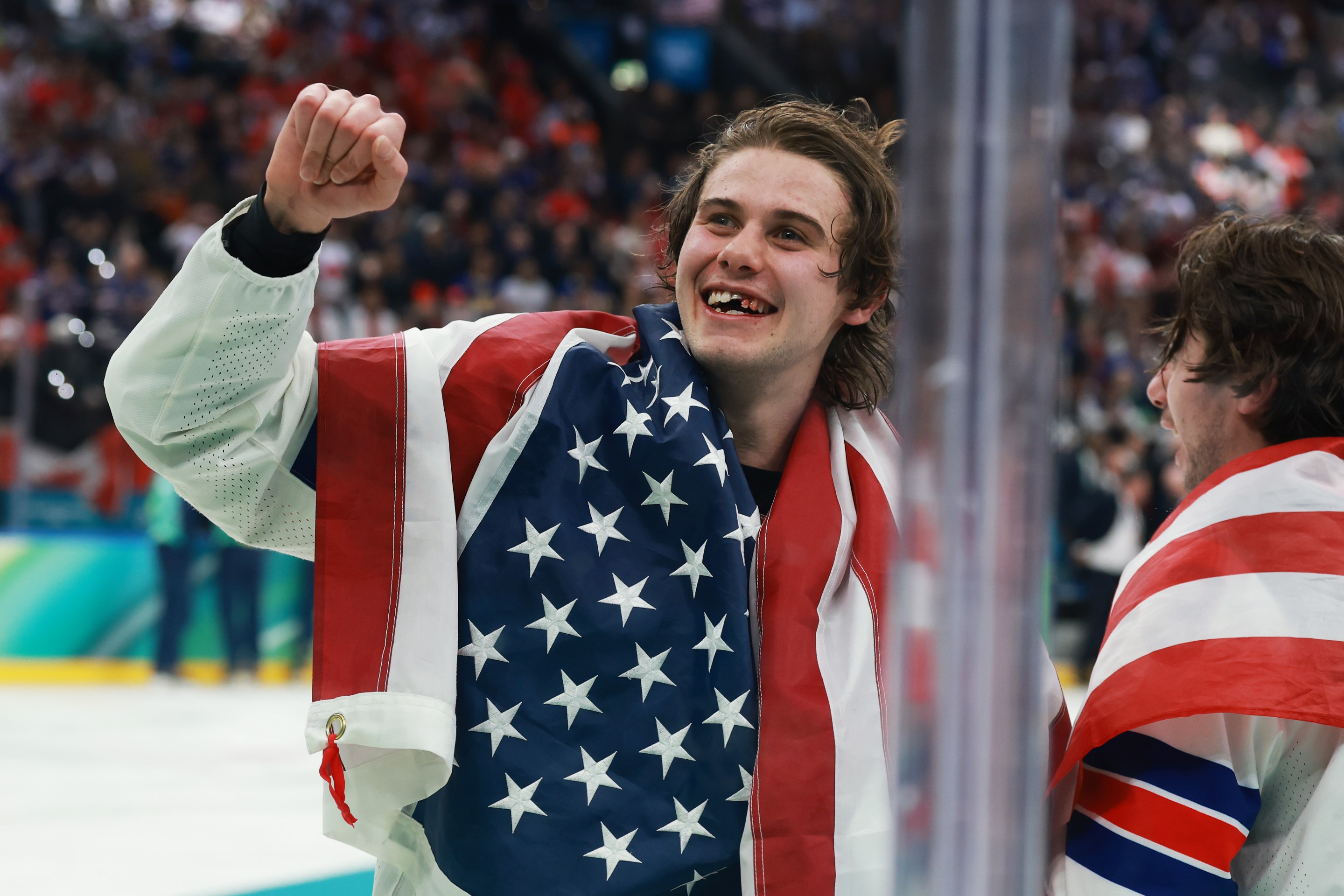My kid is not a vocal viewer. Actually, as they’d be the first to tell you, they are a weirdly un-vocal viewer. Together, and largely at their insistence, we’ve marathoned all of The Golden Girls and Cheers and are currently working on Seinfeld; as they themselves are quick to point out, they’ve laughed out loud at these, three of the funniest shows ever made, maybe four times. Mostly they just smile and nod affirmatively. Yes, they are aware of the Seinfeld episode about the woman who just says “That’s so funny,” and are looking forward to it. For people like them it’s so rare to see yourself represented on screen.
So their reaction to the most brutal sequence of torture scenes they’ve seen in their young life gave me pause. It happened in the sixth episode of the second season of The Wheel of Time, showrunner Rafe Judkins’s adaptation of the monolithic epic fantasy series by the late Robert Jordan and his literary heir Brandon Sanderson. Directed by Maja Vrvilo, the episode is called “Eyes Without Pity,” and for good reason.
In the storyline at the center of this episode, the character Egwene al'Vere—a young woman whose nascent magical powers make her one of the show’s co-protagonists—is imprisoned, enslaved, physically and psychologically tortured, and finally broken. As a lowly damane, she is being turned into a living weapon by her overseer, or sul’dam, Renna—an agent of the brutal, American-accented Seanchan empire, a colonial power that spends the season wreaking havoc in the land our heroes call home.
The gist of it is simple. Egwene has been fitted with a magical collar, linked to a corresponding magical bracelet on Renna’s arm. As long as she’s wearing the collar, she can do no harm to Renna; the mere thought of reaching for a weapon sends agonizing waves of pain throughout her entire body, and should she manage to land a blow against her tormentor, she will receive multiple times the pain herself. (The BDSM influence on all this is unmistakable, undeniable, well explored by the fandom, and confirmed by Jordan himself, so no, you’re not crazy.)
Now Egwene has a simple task: She must pick up a pitcher of water and pour Renna a cup. Unless and until she abandons all hope of escape and any belief that she’ll be able to use the pitcher as a weapon to hurt Renna, the magically induced pain makes so much as touching the pitcher impossible. No matter how many times Renna says “Pour the water, Egwene”—a mantra along the lines of The Marathon Man’s “Is it safe?”—it simply can’t be done.
Until, finally, Egwene breaks. She reaches for the pitcher. She pours Renna the water without pain. And immediately, after day upon day of this torture, Renna dumps the water on the floor. “Good girl,” she tells Egwene.
My 12-year-old kid turns to me at this point and says, “This is a good show.”
I said it’s rare for people like my kid to be represented on screen, and insofar as they almost never react to anything, this is true. Insofar as they came out as nonbinary earlier this year, it’s also true. We’re not far removed from when Asia Kate Dillon became the first openly nonbinary actor to play a main character on a television show when they debuted on Billions in 2017.
So when I learned that Xelia Mendes-Jones, the actor who plays Renna, is nonbinary, I was delighted. The Wheel of Time is the first adult drama my kid has ever watched, primarily because they adore live-action fantasy of any stripe whatsoever, and Wheel seemed like a better place to start a middle-schooler than Game of Thrones. And because Wheel was written and cast the way it was, my kid’s first exposure to what I’d consider great television drama involved two actors of color, one nonbinary and the other, Madeleine Madden, an Aboriginal Australian woman.
That’s pretty rad, right? Don’t get me wrong, I don’t regret stopping dead in my tracks as Anthony Edwards told Bradley Whitford his wife had died during childbirth in that one episode of ER ages ago, or chain smoking my way through a friend’s VHS box set of Twin Peaks in college, or my Blockbuster-enabled bingeing of The Sopranos, the show that well and truly opened the door, for me and for everyone. But the very first time my kid was stopped in their tracks by television, Madden and Mendes-Jones did the stopping. With any luck, my kid will simply take this diversification of talent for granted. I know I won’t.
The Egwene/Renna storyline is some of the most raw, fraught, without-a-net television I watched all year, reckoning directly with themes of power—imperial, racial, gender-based, sexual—any one of which is a third rail. After seeing how this hard, hard work affected a kid clearly hungry for it, I felt I had to talk to the actors who made it happen. Our conversation has been lightly edited for clarity.
When you first read this material, were there things that jumped out at you right away?
Xelia Mendes-Jones: When I auditioned I didn't really know much about the part, which was codenamed—and I couldn't find who it was gonna be. Once I was offered the part, I did my reading. The thing that jumped out at me, even from the audition scripts, was the genuine way Renna interacts with Egwene. It’s so disarming, but in a really uncomfortable way.
So for me, I had some great conversations with Rafe and Justine [Juel Gillmer, one of the show’s chief writers and executive producers], and then when we were on set with Rammy [Park, the episode’s writer], about how to give Renna this edge. When you're playing a villain, the most important thing is to … I mean, watching it and talking to friends, I'm like Renna Defender No. 1. Like, she was doing her best with a bad lot. So I was piecing together Renna’s motives, in order to have a direction to relate to. Why is she so nice to Egwene at first? What does she want out of that relationship? When she snaps, why does she snap so aggressively? The heart of the work was finding those motives.
Madeleine Madden: I knew so much of it was going to be very emotionally and physically tolling. I looked over the episodes and how to think of what I wanted to do, and knew that a lot of it would have to be left up to getting into the set, getting into the Kennels [where slaves like Egwene are imprisoned], and fleshing it out with Xelia. I referred to quite a lot of classical art, to see how pain is held and how you project pain without using words, because in that episode Egwene doesn't say much. I was like, “How can I show the true power of this collar, and why there are some things worse than death in the Wheel of Time world?”
[With Renna and Egwene], we saw the ins and outs of how the Seanchan empire operates as an institution. When you see a woman collared by the Seanchan, from watching this episode and going on this journey, you know the journey they’ve gone on to having that collar and to doing what they're told and becoming these weapons is a truly brutal one. We're in that room.
The beats that were really important for me were the flickers of hope, the flickers of recognition and appreciation of being seen as being special and strong. Egwene wasn't told that at the White Tower [where women like Egwene are normally educated and trained], and that is something that Renna has shown Egwene: You don't need anyone, you are strong enough, we can do this together, I can help you.
But those feelings are contrasted with shame and hate and anger as well. There were definitely times where, in the script, it specifically said, “Egwene does not cry, does not cry, does not cry” ... right up until the very end, when she touches the pitcher. There were moments before then where I would be crying just as a release—“I just need an hour,” or something like that—and we'd have to come back and reset and do it again. But we were very lucky to have shot chronologically, so we were able to follow the characters fully through, which was incredibly helpful. By the time I touched that pitcher—and you know, I hadn't really touched that pitcher at all the whole time really, because why would I?—and actually feeling the weight of it, and being at the end of those eight consecutive shoot days ... it was really devastating, and it all came out. When Egwene broke down and cried, there was a bit of Maddy in that. I don't know about you, Xelia, but the first time I watched it, it was quite distressing. [Pause] I'm better now. Thank you, therapist! [Laughs]
How much did the two of you prepare together before shooting?
Madden: I think we had one rehearsal—didn’t we, Xelia?—which was to figure out the physical beats of the brutality: where the pain manifested within Egwene based on the things that Renna did. Kicking Egwene, hitting Egwene, making Egwene try to touch the water—where does that pain sort of sit in the body? How do you show that? We had a really fantastic movement coach, Scarlett Mackmin, who was very important to the process of helping you figure out those beats. But she also helped you look after yourself physically, because we were in that cell with the candles for like eight days, during COVID, at the end of the year ... you know, it was pretty bleak times.
Mendes-Jones: We didn't have a huge amount of time before we started shooting together, and I was aware that this would be a much more emotional, physical process for Maddy than it would be for me, so I wanted to figure out what she needed out of me from those scenes. It was just a case of what made her comfortable.
Madden: But Xelia, you were so fantastic at reading the room as well. We were just really in tune throughout that whole process. There were definitely times on set where we were both like, “You know what? Maybe we'll just have a bit of a doomscroll and sit in silence.” [Laughs] Other times we’d talk about it and have a wine after work and debrief. The relationship that [Egwene and Renna] have is so unique, and there are moments of real beauty, but the majority of moments are of pain and suffering. For us, it was just about trying to make it as light as possible when we could, just for our own mental setting.
Mendes-Jones: Yeah, exactly. For me, it was finding the balance in between takes of trying to keep the mood up—because obviously, I wasn't really in the trenches like you were—but also not wanting to take you out of where you needed to be emotionally. I tried to keep a close eye on where the level should be.
The Wheel of Time is an enormous, sweeping epic fantasy, but much of the weight of this season—demonstrating the menace of the Seanchan Empire, establishing the stakes for the women characters in particular if they win—falls on the two of you, alone in this tiny little room.
Mendes-Jones: Yeah. Once I was offered the role, the first thing I did was I read the first three books. I tore through them: “2,400 pages? Yeah!” I wanted to set my own action in the context of the series; when we first started working, Season 1 hadn't come out, so I didn't have anything to base off. And we got to take this two- or three-page section that is reported by Egwene and turn it into a full episode of living it. Getting to see that through Egwene’s eyes ... I thought that was such a privilege, more than anything.
The main crux of it for me was being able to relate to Renna and give her a heart. No villain is a villain in their own minds. The thing that I worked really, really hard to create for her was that the process to becoming a sul’dam has not been easy, and she has seen stuff that she really did not enjoy looking at. I tried to give her this real fire and determination to not perpetuate that—but she still has to have this absolute belief that this is the way of the world, this is what you should be doing. So she's probably the nicest sul’dam you’re going to get, but the motives aren't for Egwene’s benefit, they’re for Renna’s benefit. At no point does Renna see Egwene as an equal, or even as a person. [To Madden] I remember I had ask your permission if I could pet you like a dog. It's like, “We’ve known each other for four days. You're alright if I practice petting you like a dog?”
Madden: “Go ahead, go ahead.” [Laughs]
Renna and the rest of the Seanchan invaders have American accents. That’s a real rarity in fantasy, and a pretty pointed way to link these racist imperialist colonizers with those in the real world. This is pretty raw stuff considering how present these issues remain, no matter where you live.
Madden: Yeah, absolutely. The cultural or historical context is very much embedded in this storyline, but also in the way Robert Jordan has formed these cultures, societies and institutions. We see this militant group coming in and occupying territories. For Egwene, it’s a real turning point. It has forever changed her view of all figures and institutions that hold authority. That’s spelled out when Renna says to Egwene, “Who created the collar? It was one of you.” There aren't many differences between the Seanchan and the White Tower; the Seanchan’s practices are a bit more brutal and awful, but it's the same shit, different smell. And as an actor, I was like, “Oh, my god, yeah.” Egwene had had these feelings when she was at the White Tower, like, This really ain't it. As a viewer, you’re following Egwene as she figures out that with these big institutions that hold power, the structures within are quite similar. It holds a lot of relevance for what we're experiencing in our own world, for sure.
This is a storyline is about intense, very physical power dynamics between two attractive, charismatic women, and for decades, book readers have discussed the erotic undercurrent to what's going on between them. I won’t even say it’s despite the fact that the material is really messed up, because I think that’s often how we respond to difficult material as readers or viewers: We find that charge underneath it. Was that something you were playing with on set, or did you decide to just let it emerge organically?
Mendes-Jones: It came up in our first rehearsal that we did, and it was something that we definitely discussed about creating together. When we were doing the episode, I spoke to Rafe about this: I didn't want to bring it to Renna’s relationship with Egwene, in the sense that I didn't want it to have sapphic undercurrents. It just doesn't feel appropriate for that to be Renna’s motive. It feels icky.
But we definitely played with the sadomasochism and bondage themes that are there, because you just can't ignore them. We spoke about it in terms of the relationship toward the hardware, the bracelet and the collar—about how Renna takes the bracelet off, puts it on, all those kinds of things. We were definitely playing with it, and the power dynamics, and why that should make people uncomfortable. Very famously, we got the “too orgasmic” note during one of the scenes: “Can we just do it a little less orgasmic, please?” [Laughs] But we just had it there. Like, we’re both ignoring it, but it's in the room with us.
In your final scene together, Egwene kills Renna in the midst of a huge battle. Was that cathartic for you, Maddy?
Madden: Oh, it was. I mean, it's upsetting, because obviously it was the end of working with Xelia.
Mendes-Jones: It was actually quite a journey for two actors to do on a show, a nice little three-and-a-half episode turn together.
Madden: But it was the first time I stood up without the collar on and felt the weight of the collar off of me. Standing straight and strong, I felt empowered. Renna has changed Egwene for better and for worse. And again, there's a whole war going on, fights and battles going elsewhere, but we're just here with these two people that we were in that cell with, and all of a sudden this world feels very intimate again, and we're back in their game of cat and mouse, but now it’s flipped. I was definitely glad to be done with that. [Laughs] How about you, Xelia?
Yeah, is it cathartic to die?
Mendes-Jones: [Laughs] Rafe sat me down when I first arrived in Prague and was like, “So, yeah ... you're not going to make it out this.” I was like, Good, good! Now I know that Renna has to be enough of a horrible person to earn that death. You’ve got to earn a death like that. That's a good death. But to do a death scene by choking, having watched Maddy absolutely smash choking out of the park three months before, I was terrified.
Madden: We all had a lot of practice gurgling. [Laughs]
Mendes-Jones: So yeah, it was cathartic, in the sense of, like, Renna’s not a good person and she absolutely deserves what comes. But there was something really beautiful, for me playing Renna, about her last word being Egwene’s name. It felt really like coming full circle.






